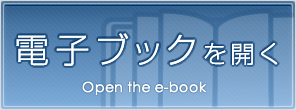カレントテラピー 35-6 サンプル page 24/30
このページは カレントテラピー 35-6 サンプル の電子ブックに掲載されている24ページの概要です。
秒後に電子ブックの対象ページへ移動します。
「電子ブックを開く」をクリックすると今すぐ対象ページへ移動します。
概要:
カレントテラピー 35-6 サンプル
84 Current Therapy 2017 Vol.35 No.6586Ⅲ 中枢性運動麻痺の回復を阻害する薬物モノアミン作用を増強する薬物が中枢性運動麻痺の回復を促進させるのであれば,モノアミン作用を減弱させる薬物は,中枢性運動麻痺の回復を妨げる可能性がある.その他,神経系に抑制的に働く薬物も同様である.Feeneyら1)は動物実験で,D-amphetamineの運動回復促進効果がハロペリドールで阻害されることを報告している.ハロペリドールはドパミンD2受容体遮断作用のほか,アドレナリンα1受容体遮断作用もある.Goldstein17)は脳梗塞後のGM1ガングリオシドの効果を検討する研究において,対照群の96例で投与薬剤と運動機能回復について後ろ向き調査をした.ベンゾジアゼピン系薬物(抗不安薬,睡眠薬などのGABA作動薬),ドパミン受容体遮断薬(抗精神病薬),α1遮断薬(降圧薬),α2 刺激薬(降圧薬),抗てんかん薬(フェニトイン,フェノバルビタール)が投与されていた懸念薬物投与群(37例)について,運動機能と日常生活活動(ADL)を発症84日後まで評価し,その他の薬物投与群(59例)と比較した.その結果,上肢運動機能とADLは懸念薬物投与群で回復が不良であった.脳卒中では,降圧薬,抗てんかん薬,睡眠薬などを投与する機会が多いが,もし可能であれば上述の薬物は投与を控えるほうがよいと考えられる.参考文献1) Feeney DM, Gonzalez A, Law WA:Amphetamine, haloperidol,and experience interact to affect rate of recovery aftermotor cortex injury. Science 217:855-857, 19822) Crisostomo EA, Duncan PW, Propst M, et al:Evidence thatamphetamine with physical therapy promotes recovery ofmotor function in stroke patients. Ann Neurol 23:94-97,19883) Walker-Batson D, Smith P, Curtis S, et al:Amphetaminepaired with physical therapy accelerates motor recoveryafter stroke. Further evidence. Stroke 26:2254-2259, 19954) Martinsson L, Wahlgren NG:Safety of dexamphetamine inacute ischemic stroke:a randomized, double -blind, controlleddose-escalation trial. Stroke 34:475-481, 20035) Sonde L, Nordstrom M, Nilsson CG, et al:A double-blindplacebo-controlled study of the effects of amphetamine andphysiotherapy after stroke. Cerebrovasc Dis 12:253-257,20016) Treig T, Werner C, Sachse M, et al:No benefit from Damphetaminewhen added to physiotherapy after stroke:arandomized, placebo-controlled study. Clin Rehabil 17:590-599, 20037) Gladstone DJ, Danells CJ, Armesto A, et al;SubacuteTherapy with Amphetamine and Rehabilitation for StrokeStudy Investigators:Physiotherapy coupled with dextroamphetaminefor rehabilitation after hemiparetic stroke:a randomized,double-blind, placebo-controlled trial. Stroke 37:179-185, 20068) Sonde L, Lokk J:Effects of amphetamine and/or l-dopa andphysiotherapy after stroke - a blinded randomized study.Acta Neurol Scand 115:55-59, 20079) Schuster C, Maunz G, Lutz K, et al:Dexamphetamineimproves upper extremity outcome during rehabilitationafter stroke:a pilot randomized controlled trial. NeurorehabilNeural Repair 25:749-755, 201110) Dam M, Tonin P, De Boni A, et al:Effects of fluoxetine andmaprotiline on functional recovery in poststroke hemiplegicpatients undergoing rehabilitation therapy. Stroke 27:1211-1214, 199611) Chollet F, Tardy J, Albucher JF, et al:Fluoxetine for motorrecovery after acute ischaemic stroke(FLAME):a randomisedplacebo-controlled trial. Lancet Neurol 10:123-130,201112) Mead GE, Hsieh CF, Lee R, et al:Selective serotonin reuptakeinhibitors(SSRIs)for stroke recovery. CochraneDatabase Syst Rev 11:CD009286, 201213) Scheidtmann K, Fries W, Muller F, et al:Effect of levodopain combination with physiotherapy on functional motorrecovery after stroke:a prospective, randomised, doubleblindstudy. Lancet 358:787-790, 200114) Acler M, Fiaschi A, Manganotti P:Long -term levodopaadministration in chronic stroke patients. A clinical and neurophysiologicsingle -blind placebo -controlled cross -overpilot study. Restor Neurol Neurosci 27:277-283, 200915) Muresanu DF, Heiss WD, Hoemberg V, et al:Cerebrolysinand Recovery After Stroke(CARS):A Randomized,Placebo-Controlled, Double-Blind, Multicenter Trial. Stroke47:151-159, 201616) Chang WH, Park CH, Kim DY, et al:Cerebrolysin combinedwith rehabilitation promotes motor recovery in patients withsevere motor impairment after stroke. BMC Neurol 16:31,201617) Goldstein LB:Common drugs may influence motor recoveryafter stroke. The Sygen In Acute Stroke Study Investigators.Neurology 45:865-871, 1995

